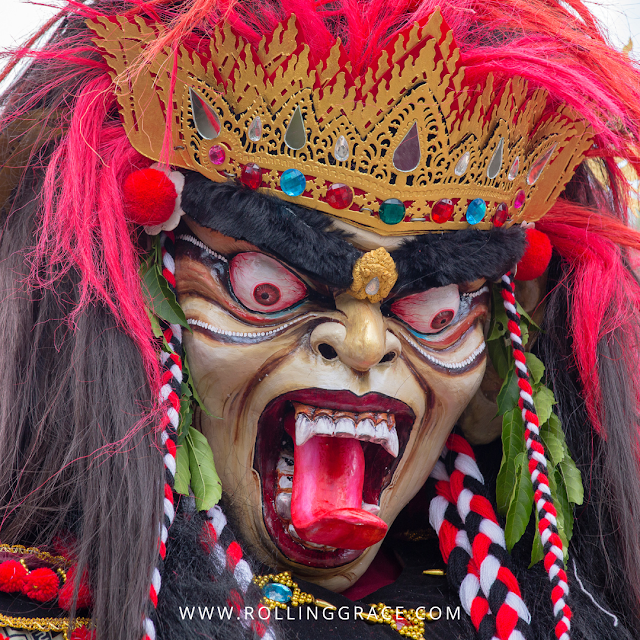Complete Guide to Experiencing Nyepi: Day of Silence in Bali
Dive into the heart of Bali and discover a day so enchantingly quiet, it might just redefine your concept of peace. Once a year, the island transforms, shedding its vibrant bustle for a cloak of serenity that blankets every corner for 24 hours. This isn't merely a pause; it's an island-wide embrace of tranquillity known as Nyepi Day, marking the Balinese New Year.
Unlike anywhere else on the globe, where the turn of the year is met with jubilation and revelry, Bali chooses a path less travelled by plunging into a profound stillness. From dawn until another daybreak, the entire island retreats, allowing you, whether tucked away in your villa or nestled in a cosy hotel, to witness a world untouched by the usual flurry of daily life.
Picture this: a day untouched by the hum of vehicles, devoid of bustling markets, devoid of the day-to-day cacophony that accompanies island life. Instead, the only soundtrack is the whisper of the wind through the trees, the distant crash of waves against the shore, and at night, the sky unveils a canvas studded with stars, usually hidden by the veil of light pollution.
Nyepi Day offers a unique opportunity to disconnect from the world and reconnect with yourself, amidst the backdrop of Bali's natural beauty. It's an experience so surreal, leaving you feeling rejuvenated, with a fresh perspective on the beauty of silence and the rhythm of nature. Take a step off the well-trodden path and let Bali enchant you with its most peaceful day – a rare treat for the soul in today's non-stop world.
Read more: Best Bali Resorts with Private Pools
 |
| Nyepi: A Day of Silence in Bali |
Complete Guide to Experiencing Nyepi: Day of Silence in Bali
History of Nyepi Day
Nyepi is the national day of silence in Bali. It is a day for devotees to honour the Hindu New Year through self-reflection, meditation and fasting. There are four elements to the Nyepi ritual, including Amati Geni (to not light up fire/switch on lights), Amati Karya (to not work), Amati Lelunganan (to not travel), and Amati Lelanguan (to fast & abstain).The religious festival is observed from 6 a.m. to 6 a.m. of the following day. Ngembak Geni is celebrated on the day after Nyepi, where social activities resume almost immediately and dear ones come together to perform religious rituals and seek forgiveness from one another.
 |
| On Nyepi Day, devotees honour the Hindu New Year through self-reflection, meditation and fasting |
Balinese New Year
Step into a world where silence cloaks the land, a rare moment of absolute tranquility that wraps around you, inviting introspection and peace. This is Bali during Nyepi, the Balinese New Year, a day unlike any other on the island, steeped in a tradition held dear by over 90% of its Hindu population.
On Nyepi, the vibrant streets usually bustling with life come to a standstill; vehicles vanish from the roads, and the island holds its breath in a state of serene contemplation. It's a day dedicated to self-reflection, when even being seen in public spaces might find one gently reminded of the sacredness of the day by local authorities. For you, the intrepid traveller, the usual explorations are paused, as Bali embarks on this unique spiritual journey.
But far from being a day of missed opportunities, Nyepi offers a rare chance to revel in the quiet luxury of your resort, to meditate on the tranquil beaches at dawn, or to gaze at the stars unfettered by the usual cloak of artificial light, a spectacle made even more splendid with the island's airports taking a day off from their usual hustle and bustle.
It's a day when the island's fervent commitment to cultural values and spiritual renewal invites you to look inward, even as you're ensconced in the lush, tropical paradise of Bali. The experience of Nyepi, with its profound stillness and enforced pause, becomes a solemn reminder of the beauty in simplicity and the power of quietude in our often chaotic world. It's an invitation from Bali to you, to join in this moment of pause, offering a chance to reset, to be genuinely present, and to savour the rare peace that comes from within.
 |
| Over 90% of the Balinese population practices Hinduism |
Ogoh-ogoh Parade Bali
In the artistic epicentre of Ubud, Bali, you'll encounter the extraordinary Ogoh-ogoh—a tradition that intertwines creativity, spiritual cleansing, and community. Picture this: skilful hands shaping towering figures from papier-mâché, their forms deliberately contorted into grimaces and snarls. These are no ordinary creations—each Ogoh-ogoh is a masterpiece, meant to embody the malevolent spirits that Balinese Hinduism seeks to banish. In the days sashaying up to the New Year or Nyepi, the island hums with an electric buzz, with artisans in every nook animating these giants, readying them for the parade that is both awe-inspiring and just a touch macabre.
Imagine witnessing these grisly giants take their final, glorious strut through the streets of Bali. As dusk folds into the night sky, you stand enveloped by an air of anticipation, the collective heartbeat of spectators awaiting the parade's crescendo. With torches ablaze, these grotesque effigies, which have taken on the role of malevolence manifest, are set alight in a ceremony as old as time. It's a spectacular ritual, reflecting the Balinese conviction of restoring balance and bidding farewell to the past year’s demons. This is your cue for introspection—to contemplate the ebb and flow of good and bad in life, and to embrace renewal.
 |
| Ogoh-ogoh are large statues of demons built for the Ngrupuk parade, which happens on the eve of Nyepi day. |
Travel Tips During Nyepi
Many travellers may shy away from visiting Bali during Nyepi. The thought of missing out on sun-soaked beach days or indulging in the island's vibrant nightlife might seem disappointing. But let's flip the coin here: Nyepi provides a golden opportunity to delve into a unique cultural experience, offering you a still moment to soak in tranquillity, delve into meditation, or simply unwind. Here are a few tips to make your Nyepi journey unforgettable:- Pack a book or any companion that aids your personal reflection. You'll have the day at disposal to plunge into those long-overdue reads.
- onfirm in advance with your accommodation about meal arrangements, ensuring you won't stay hungry during the island's quiet hours.
- Mind the calendar when planning your flights to and from Bali, as airports also take a day off during Nyepi.
- If a day of introspective silence isn't your cup of tea, consider a side-trip to a neighbouring island.
- Capture the moment - Nyepi offers a rare chance for some truly unique photography.
And most importantly, remember to respect the local customs and those celebrating around you. Nyepi experience isn't about missing out, it's about embracing a cultural journey that offers tranquillity and contemplation, certainly a priceless addition to your travel memoirs!
 |
| Nyepi: A Day of Silence in Bali |
While the typical delights of Bali might be temporarily tucked away, Nyepi sets the stage for a different, more profound adventure - the journey inward. It's truly one of the island's most powerful experiences, offering you a chance to embrace tranquillity, to reflect, to appreciate the quieter moments of life, often masked by the everyday hustle.
The Balinese Day of Silence is an illuminating immersion into culture and self that's unmissable for the discerning globe-trotter. Each person's Nyepi experience varies, moulded by individual perceptions and internalisations. But one thing is constant: the echoes of the extraordinary quietude leave a lasting imprint on your soul, long after the day is over and life on the island has returned to its radiant vibrancy.
So here's to adding Nyepi to your travel agenda, to experiencing this profound silence, and gathering stories, not just of places, but of shared traditions, time-honoured rituals and personal growth. After all, isn't that the true essence of travelling – to explore, learn and evolve?
Let your travel and dining escapades shine on Instagram! Tag @rollinggrace or #RollingGrace to share your moments with us. Happy exploring!









A very interesting and respectable ritual balinese practice. Indeed there is so much to learn about every religion and their different and unique practices.
ReplyDelete